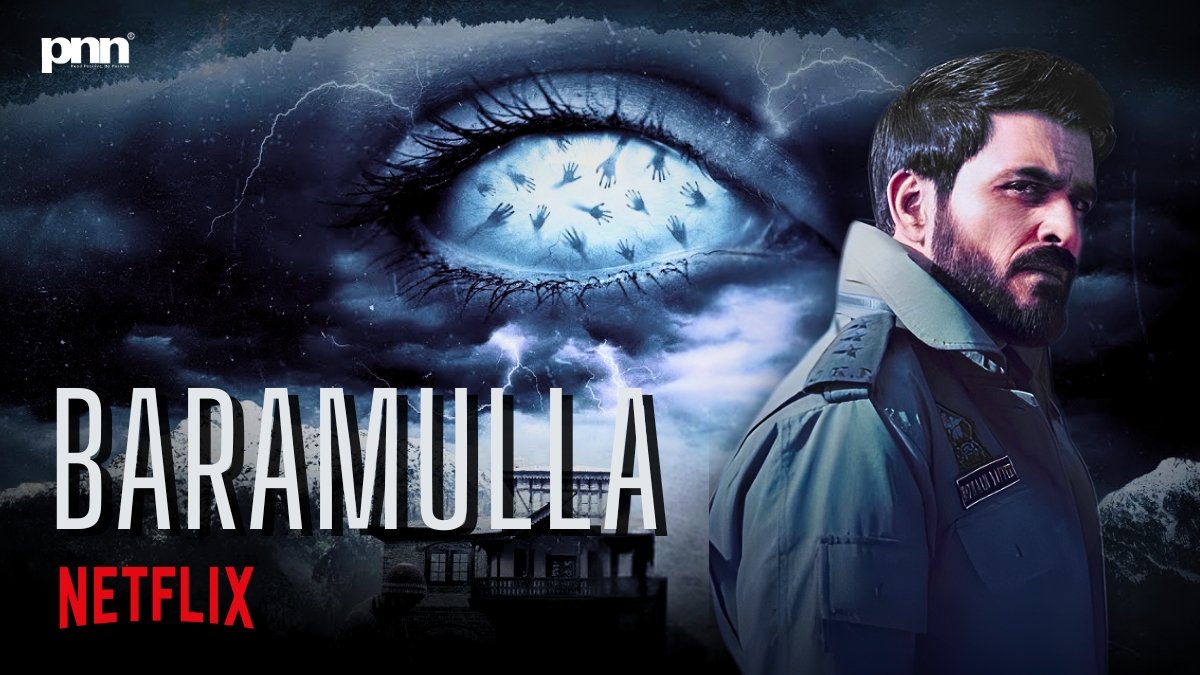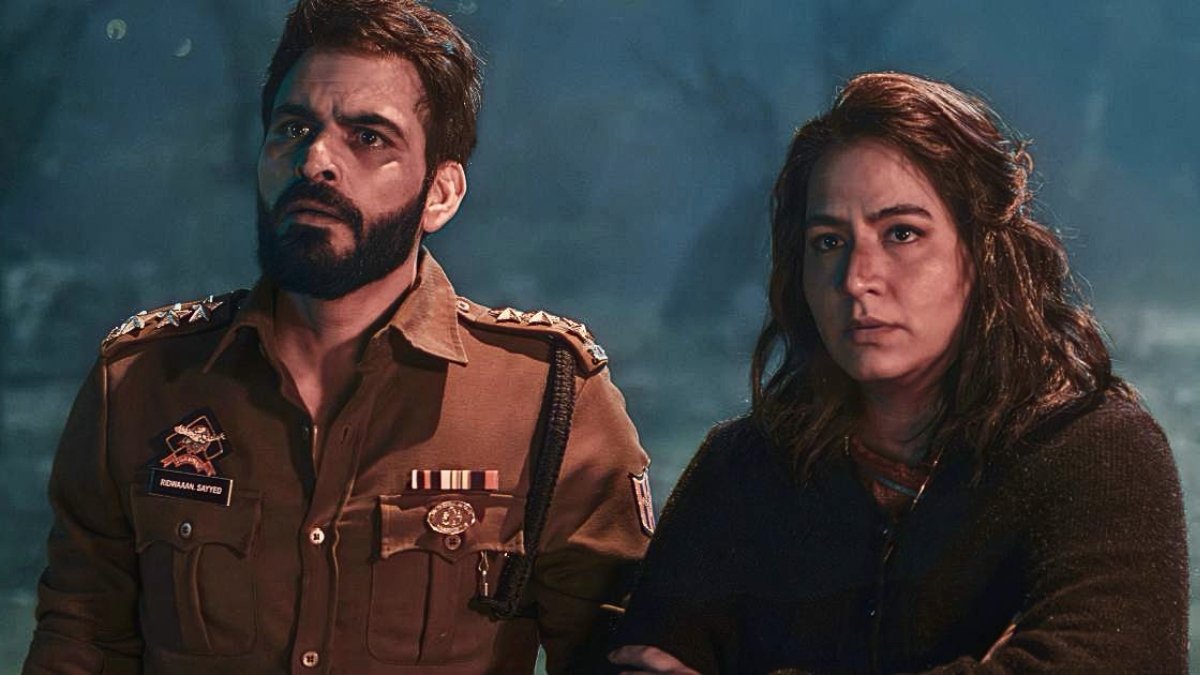Why Everyone’s Talking About Baramulla — Manav Kaul’s New Psychological Thriller

Mumbai (Maharashtra) [India], November 8: There are movies that tell a story, and then there are those that linger like a ghost in the room — Baramulla firmly belongs to the latter. Streaming now on Amazon Prime Video, the Manav Kaul–starrer is less a supernatural thriller and more a poetic autopsy of grief, memory, and the unending ache of displacement.
Directed by Amit Joshi, the film tiptoes through the turbulent corridors of Jammu and Kashmir’s sociopolitical psyche — a land as breathtaking as it is bruised. While the premise toys with spirits and lost souls, the narrative’s real haunting comes from its refusal to look away from the human cost of political decisions, particularly those echoing around Article 370.
A Quick Glimpse at the Facts
| Aspect | Details |
|---|---|
| Title | Baramulla |
| Director | Amit Joshi |
| Lead Cast | Manav Kaul, Rasika Dugal, Raj Zutshi |
| Genre | Supernatural / Psychological Drama |
| OTT Platform | Amazon Prime Video |
| Runtime | 2 hours 12 minutes |
| Budget | ₹18 crore (approx.) |
| Filming Location | Baramulla, Jammu & Kashmir |
| Release Date | November 7, 2025 |
| Production Houses | Roy Kapur Films, RSVP Movies |
| Language | Hindi |
A Story That Refuses to Stay Silent
Baramulla opens with a simple enough setup — a writer returning to his ancestral home in the eponymous valley after decades of exile. But the nostalgia quickly curdles into something darker. The past creeps in, whispering through empty corridors, half-burnt letters, and radio static.
Kaul, ever the theatre poet, doesn’t “perform” his role — he wears it. His portrayal of a man unraveling under the weight of memory is hauntingly restrained, the kind of acting that doesn’t need background music to prove it’s profound. Rasika Dugal, meanwhile, is the calm eye of the storm, her silences louder than any dialogue.
Director Amit Joshi’s storytelling walks a thin line between mysticism and melancholia — one minute you’re admiring the snow-dusted landscapes, the next you’re questioning if they’re metaphors for erasure. Subtlety is the film’s chosen weapon; it doesn’t scream political commentary, but it definitely smuggles one under the guise of folklore.
Behind the Lens: The Valley’s Uneasy Calm
Shot across the real lanes of Baramulla, the production crew faced unpredictable weather, logistical nightmares, and the eerie quiet that only a conflicted region can offer. Locals were reportedly supportive yet guarded — an authenticity that seeps through the screen.
Cinematographer Tushar Kanti Ray captures the valley not as a postcard but as a scar. His lens is unromantic, cold, and deliberate — each frame looks like a secret half-buried in snow. Interestingly, much of the film’s muted palette mirrors the state’s own emotional greys after the abrogation of Article 370. Coincidence or careful artistry? Probably both.
Numbers Speak (and So Does the Internet)
In its first 72 hours on Prime Video, Baramulla registered nearly 4.7 million views — a remarkable feat for a non-commercial thriller with no chartbuster songs or high-octane marketing. Critics have been sharply divided:
- The Hindu called it “a gripping supernatural drama with a heavy political undercurrent” but hinted that the screenplay sometimes “labors under its own self-importance.”
- India Today labeled it “a haunting ode to loss, memory, and exile”, praising Kaul’s “intellectual stillness” and Dugal’s raw composure.
- India TV highlighted how social media has embraced the film as “artsy but accessible”, with X (Twitter) users calling it “emotionally devastating but visually spellbinding.”
And of course, where there’s emotional devastation, there’s internet humour. One tweet quipped:
“Baramulla made me cry, then Google where to buy woolen tissues.”
Even the sarcasm online seems poetic.
What Worked (and What Didn’t)
The Good:
- Manav Kaul’s performance — understated brilliance.
- Authentic Kashmiri backdrop, not a studio mock-up.
- Sharp cinematography and atmospheric score by Alokananda Dasgupta.
- Courageous themes: identity, displacement, and cultural amnesia.
The Not-So-Good:
- Pacing that tests patience — if you like quick gratification, this isn’t your cup of kahwa.
- Philosophical indulgence — occasionally feels like it’s speaking only to its own echo.
- Minimalist dialogues may alienate mainstream audiences seeking drama over depth.
From Exile to Expression: The Soul of the Story
There’s a cruel irony in Baramulla’s core — a film about loss, made in a land where loss is inherited. It doesn’t wave flags or ignite outrage; instead, it leaves the audience unsettled with quiet truths. It’s more “what was left unsaid” than “what was shown.”
Thematically, the movie sits comfortably beside works like Haider and Talvar, though it dares to be less cinematic and more confessional. Joshi’s screenplay often reads like pages torn from a forgotten diary, perhaps belonging to every displaced Kashmiri.
Box Office & Production Buzz
While the theatrical window was bypassed in favour of a direct OTT release, Baramulla’s digital rights were reportedly sold for ₹22 crore, recouping the budget even before premiere week. Not bad for a film that prioritizes philosophy over flash.
Production insiders reveal that Manav Kaul personally workshopped his role for nearly three months, living in isolation near Sonmarg to “unlearn dialogue delivery.” Yami Gautam and Emraan Hashmi (from Haq, also recently released) even dropped supportive comments on social media, applauding its “visual poetry.”
Public Mood: Applause Meets Existential Shrugs
| Platform | Audience Sentiment | Top Comment / Reaction |
|---|---|---|
| X (Twitter) | 81% positive | “Hauntingly beautiful. I watched it twice just to understand once.” |
| IMDb | 7.8/10 | “Unconventional, heavy, but worth it.” |
| Trending Reels | Users remixing Kaul’s monologue with snowfall filters. | |
| YouTube Shorts | Viral Edits | Clips captioned “Pain has a postcode — Baramulla.” |
Final Word: A Film That Demands Stillness
Baramulla is not for those seeking Friday night escapism. It’s for those who enjoy cinematic slow burns — the kind where silence says what dialogue cannot. Manav Kaul’s performance anchors it; Amit Joshi’s direction sharpens it. Yes, it’s indulgent at times. Yes, it risks alienating attention spans shorter than a TikTok. But it’s also brave, lyrical, and eerily timely.
The valley has found yet another voice — quiet, introspective, and disturbingly relevant.
And this time, it’s not shouting for attention; it’s whispering truths we’d rather not hear.

